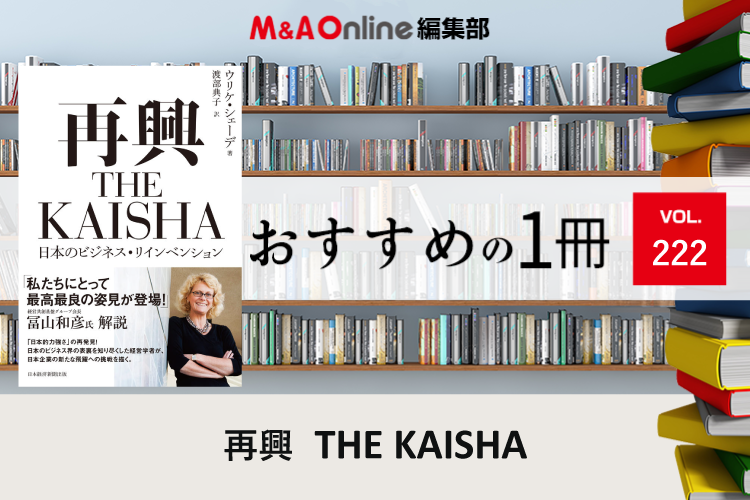Revival THE KAISHA | One book recommended by the editorial department | M & A Online

From among many business books and economic novels, the M&A Online editorial department has picked up one recommended book. In addition to books related to M & A, we will introduce books that are useful as knowledge to read and understand daily work techniques and economic news.
・・・・
“Reconstruction THE KAISHA: Japanese Business Reinvention” Written by Urike Schede, Translated by Noriko Watanabe, Nihon Keizai Shimbun Publishing
The “lost 30 years” have passed since the collapse of the bubble economy, and there is growing concern that the Japanese economy will continue to decline, coupled with the rapid depreciation of the yen. But the author of the book, Urike Schede, a professor at the University of California, San Diego School of Global Policy and Strategy, says Japan remains an important economic powerhouse.
The author is a German and a leading researcher of Japanese management who has worked as a researcher in Japan, at the Economic Research Institute of Hitotsubashi University, the Bank of Japan, the Ministry of Economy, Trade and Industry, the Ministry of Finance, and the Development Bank of Japan, in addition to his home country and the United States.

He also disputes the theory that Japan was unable to keep up with changes in the economic environment, which is said to be the cause of Japan’s downfall. It is said that Japan has changed and is headed for revival. This book explains the structural changes toward business revival (reinvention) of Japanese companies.
In particular, M&A is attracting attention as a means of reinvention for Japanese companies. Private equity (PE) funds are the driving force behind this. The author of the masterpiece “Vulture” portrayed PE funds as ruthless foreign investors in the 2007 original drama, but in the new series in 2018, he rescues Japanese companies and protects them from evil market forces. He points out that he is portrayed as a hero.
It is said that this is because M&A that actually happened at a Japanese company changed the impression of Japanese people towards PE funds. In the early 2000s, PE funds were as hostile as “vultures” and criticized Japanese companies for their closedness and backwardness, and upset the hearts of Japanese people.
However, with the start of Abenomics in the 2010s, the PE boom reignited in Japan, and M&A surged. It is said that this is largely due to the PE fund changing its behavior in line with the style and practices of Japanese companies.
In other words, PE funds have learned “what Japanese companies dislike” and learned techniques to avoid them. He tries to take his time in negotiations, guarantees the employment and treatment of employees after the acquisition, and appoints a Japanese person in charge of negotiations. As a result, M&A by PE funds has grown significantly in Japan.
PR funds have also changed, but some Japanese companies have accepted or actively used them. The company is embarking on strategic repositioning, such as the aggressive sale of listed subsidiaries like Hitachi, which reforms conventional group management, and “selection and concentration” rather than discarding unprofitable businesses. From the point of view of “M&A”, Japanese companies are definitely “evolving”. (Released in August 2022)
Text: M&A Online Editorial Department
